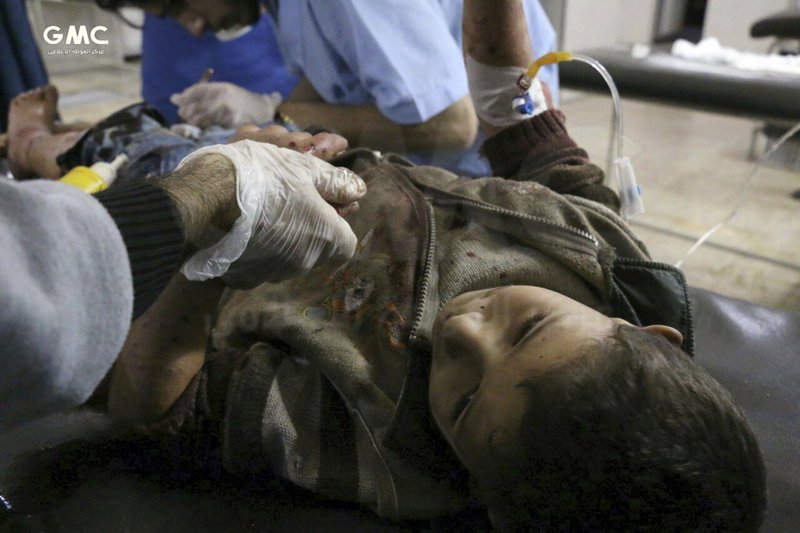
At least seven Syrian children were killed in government shelling of a rebel-held area outside Damascus on Tuesday, most as they left school, activists said.
The government has intensified its campaign against the last rebel holdouts on the outskirts of the capital as Russian-sponsored talks in Kazakhstan aim to consolidate “de-escalation zones” in different parts of the country.
The limited local truces are aimed at freezing the lines of the six-year-old civil war, which has claimed an estimated 400,000 lives, and allowing humanitarian aid to flow into besieged areas.
The Ghouta Media Center and the Syrian Observatory for Human Rights said at least five children were killed when a shell landed at the gate of a school in Jisreen, a town in the eastern Ghouta suburbs of Damascus, as children were leaving for the day. The Observatory said the death toll is likely to rise and that another child was killed in the village from another shell. One of the children had his legs blown off.
Shelling in the northeastern town of Musraba has meanwhile killed another three people, including a child, according to the Observatory. The Ghouta Media Center said four were killed, including two children. Another shell in Harasta, also in the eastern Ghouta suburbs, landed near a school but only caused injuries.
Eastern Ghouta, which is still home to an estimated 350,000 people, has endured years of siege and shelling, which has continued despite a de-escalation agreement backed by the government and its close allies, Russia and Iran.
On Monday, the United Nations said it reached thousands of residents for the first time in over a month. The area is one of the last remaining pockets of opposition to President Bashar Assad, and depends on aid and smuggling.
Rebels have responded to the shelling with a barrage of mortars lobbed at government-held districts in Damascus, wounding at least 10 civilians in three neighborhoods.
The rebels and the government are meanwhile set to conclude the latest round of talks in the Kazakh capital, Astana. The negotiations are sponsored by Turkey, which backs the rebels, as well as Russia and Iran.
The de-escalation zones agreed to in Astana have significantly reduced the violence in many parts of Syria, but a lasting political solution remains elusive.




